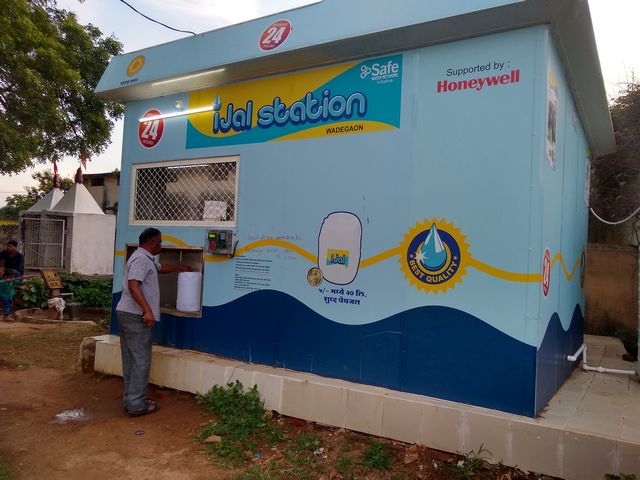Surekha Gadpori lives in one the most socially and economically disadvantaged pockets in the city of Hyderabad. With extensive experience in active social work, the sprightly 60-year-old saw the potential for safe drinking water to improve her community’s health and wellbeing. Surekha leveraged the trust and respect of her community to join the growing ranks of water aunties, entrepreneurs actively dispensing safe drinking water to their community.
This CSR-supported programme was rolled out by Safe Water Network India in 2016. It’s a new approach to Safe Water Enterprises which turns women from mere consumers to water entrepreneurs by hiring them in the iJal supply chain. The nonprofit organisation is using a social franchise model to facilitate water ATMs called iJal stations for safe drinking water. Because of the network Surekha has established over decades of working for her community, she knew she could convince the community to switch to affordable safe water. She used to be active in the local anganwadi before becoming a water aunty.
Water aunty Surekha also spreads awareness about water safety. She visits people at their shops in the market, their homes and their factories to explain the health benefits of safe drinking water. Surekha has been selling treated water from her iJal station for the last three years. The water ATM is set up in a public-private partnership by Honeywell Hometown Solutions Foundation, Greater Hyderabad Municipal Corporation, Hyderabad Metropolitan Water Supply and Sewerage Board and USAID with Safe Water Network India.
“The team trained me in the technical and practical aspects of running the iJal station. They taught me how to run and manage the water ATM. It’s been three years I have been a water aunty and I’m proud to be dispensing drinking water even during the lockdown for the good health of my people. It takes up a few hours of my day and leaves me free for the rest of the day, so I have time for other chores and activities too,” she told The CSR Journal over the phone.
Meanwhile, in a village located in Maharashtra’s Gadchiroli district, water aunty Pushpa Bhoyer has been instrumental in drastically reducing incidences of water-related diseases like typhoid and diarrhoea among young children. “Mothers tell me they don’t need to take their children to the doctor as frequently as they used to since they’ve switched from well water to treated water,” Pushpa told us in a phone interview. Water aunties like her are improving the health scenario in rural areas and earning the respect of their community.


